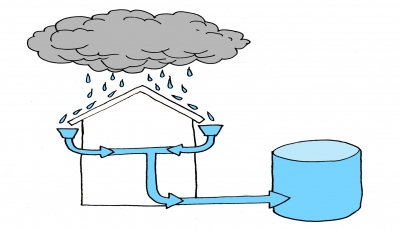Specialist Recommendations on Reclaim Waste Liquid Waste Removal and Industrial Waste Water Treatment
Discovering the Relevance of Reclaim Waste in Sustainable Waste Administration Initiatives
In the world of lasting waste management, the principle of reclaiming waste emerges as an important part that demands interest and factor to consider. By examining the elaborate interaction in between waste recovery and sustainable waste management campaigns, we begin to unravel a story that extends beyond standard waste disposal methods.
Significance of Reclaiming Waste
Why is reclaiming waste crucial in lasting waste administration techniques? Reclaiming waste plays a critical duty in sustainable waste monitoring by decreasing the amount of waste sent out to garbage dumps, preserving natural deposits, and minimizing ecological impact. By reclaiming waste products with repurposing, recycling, or upcycling, useful sources can be recouped and reestablished into the manufacturing cycle, decreasing the demand for virgin products. This not only decreases the pressure on natural deposits yet likewise aids in lowering power intake and greenhouse gas exhausts connected with the removal and handling of basic materials.
In addition, recovering waste fosters a round economic situation where materials are reused and reused continuously, advertising an extra effective and lasting use sources. It additionally contributes to the development of eco-friendly work and financial growth in the recycling and waste administration industry. By incorporating waste reclamation methods into waste monitoring methods, neighborhoods and services can relocate towards a much more sustainable future, where waste is checked out not as a concern yet as an important source.
Advantages for the Setting
In the world of sustainable waste administration, the practice of reclaiming waste not just conserves all-natural sources and reduces waste sent out to land fills but also generates substantial advantages for the environment. By recovering waste materials, such as steels, glass, plastics, and raw material, the environmental effect of resource removal and manufacturing is decreased (Reclaim Waste). This causes reduced energy usage, decreased greenhouse gas discharges, and lower degrees of air and water pollution related to drawing out basic materials
Additionally, redeeming waste helps in the preservation of biodiversity and all-natural habitats. It lowers the requirement for landfill room, therefore reducing land deterioration and habitat destruction. Additionally, the process of recovering waste usually involves recycling and repurposing products, which consequently decreases the need for brand-new products and the linked power and sources needed for their production.
Contribution to Circular Economy
Playing a crucial role in cultivating sustainability and resource effectiveness, reclaiming waste makes a significant payment to the round economic climate. By reestablishing disposed of products back into the production cycle, redeeming waste reduces the need for virgin resources, therefore reducing the general ecological influence of source removal and intake. This procedure lines up with the concepts of the circular economic situation, which stresses making the most of the value and energy of sources through closed-loop systems.
As an outcome, reclaiming waste aids visit the website to develop an extra resilient and sustainable economic situation that is less reliant on limited sources and prone to disturbances in the supply chain. Ultimately, by integrating waste recovery techniques into waste administration areas, organizations and campaigns can proactively add to developing a much more regenerative and circular economy.
Reducing Landfill Waste

Education and understanding campaigns on correct waste disposal and the significance of reducing, reusing, and recycling can likewise play a crucial role in minimizing garbage dump waste. By prioritizing the reduction of land fill waste, sustainable waste management practices can be improved, leading to a much healthier atmosphere and economic situation.

Future Effects
Thinking about the rapid innovations in modern technology and evolving ecological challenges, the future ramifications of sustainable waste administration are poised to reinvent current practices. The adoption of innovative modern technologies such as expert system, Web of Points (IoT), and blockchain can significantly improve waste surveillance, sorting, and recycling procedures. These improvements enable real-time monitoring of waste streams, view website identification of recyclable products, and improved efficiency in resource allowance.
Furthermore, the shift in the direction of a circular economic situation design, where sources are reused, reused, or upcycled, will certainly come to be increasingly prevalent. This shift not only lowers the reliance on virgin products yet additionally minimizes waste generation, bring about a much more eco pleasant and sustainable waste administration strategy.
Furthermore, the combination of sustainable waste management practices into more comprehensive sustainability programs is anticipated to gain traction. Industrial waste water treatment. Organizations and governments worldwide are recognizing the importance of waste reduction and recycling in combating climate change and advertising a round economic situation. Because of this, plans and regulations supporting lasting waste monitoring campaigns are likely to end up being more rigorous, driving markets in the direction of even more environment-friendly methods
Conclusion
In final thought, the value of redeeming waste in sustainable waste management efforts can not be overstated. By reclaiming waste, we can decrease environmental influence, add to a round economy, and decrease land fill waste.
By analyzing the detailed interaction in between waste improvement and sustainable waste monitoring initiatives, we begin to decipher a story that prolongs past standard waste disposal methods. Redeeming waste plays a crucial function in lasting waste management by reducing the amount of waste sent out to land fills, saving all-natural resources, and lessening ecological influence. By incorporating waste improvement techniques into waste administration neighborhoods, strategies and services can move towards a much more lasting future, where waste is seen not as a burden however as a beneficial resource.
